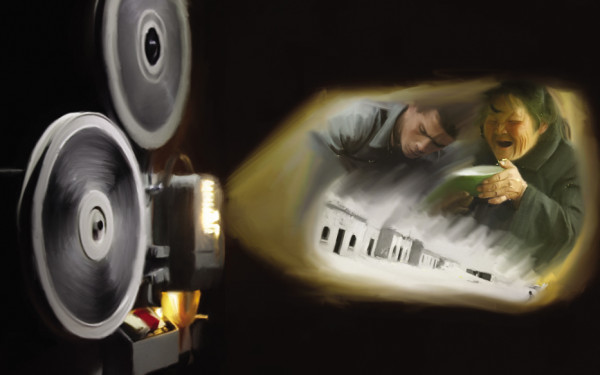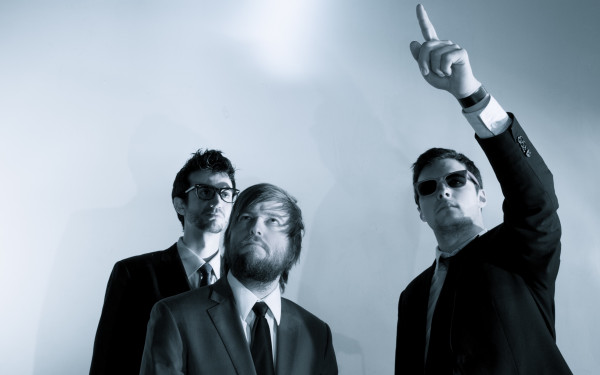Reality’s Bytes
Montreal’s Phi Centre Hosts Kaleidoscope VR Film Festival
In 1992, film critic Roger Ebert wrote an essay titled, “The Chilling Film Concept of Virtual Reality,” expressing anxieties about the ‘technical and ethical’ implications of submerging a live audience into a virtual world.
Over two decades later, filmmaker and Kaleidoscope VR co-founder René Pinnell has no such worries. In fact, he’s totally fearless and convinced that the medium of virtual reality film is poised for takeover in a big way.
“Cinema has been the dominant art form for the last 100 years and I think we’re on track for virtual reality [to become] the next dominant art form,” Pinnell said.
His company, Kaleidoscope, is a “Virtual Reality Agency for Independent Artists,” which launched a ten-city film festival tour across North America—with Montreal’s Phi Centre as its seventh stop on Oct. 1.
His confidence in the rapidly developing medium is backed up by some seriously impressive numbers. It was only in March that Pinnell and his business partner Michael Breymann quit their jobs to form Kaleidoscope, and seven months later, hundreds of people are coming out to see what the festival’s 20 virtual reality films have to offer.
“Our goal with the festival is to inspire people to join the movement,” Pinnell said. “We want them to see the work, learn from the work, and then go and make something better.”According to him, what audiences at the festival will see are not “films” but “experiences.”
“If virtual reality is done right, you actually feel like you’re there. You don’t feel like you’re just looking at a screen,” he said. “When you go to a live theatre you have that same magic.
There’s an electricity, because you’re seeing a live person go through something right in front of you. You have that same tension in virtual reality, you’re there with the character.”
In order to create their virtual reality pieces, VR artists choose between two primary methods, both with unique benefits and challenges. Live action VR films are shot with multiple cameras—anywhere from four to 24 of them, configured in a sphere—to create a 360-degree viewing experience.
“You have to totally rework how you operate a set,” Pinnell explained. “All of your crew have to be completely in a different room or they have to be the actors themselves.”
The second kind of films is computer-animated, which can increase the level of interactivity. According to Pinnell, computerized characters can look the audience in the eye, and even interact with them.
Whether shot live action or rendered through a computer, no two VR entries in the festival are exactly alike. The films range in tone, from the humorous Butts by Tyler Hurd, to the impressionist smears of Mac Cauley’s The Night Café, in which the viewer takes a stroll through Van Gogh’s masterpiece of the same title.
There is even room for documentary within the medium. Witness 360: 7/7 is the story of how one woman survived and recovered from the 2005 bombings of the London subway.
“You’re physically in the same space as her, you feel such an intense connection,” Pinnell said. “It’s impossible to ignore, it’s impossible to look away. There’s no way to get out of the story because you’re inside it.”
Festival attendees will have access to Oculus Rift headsets, which were originally developed for 3D gaming experiences. This means that each viewer will have the chance to be completely immersed in the films on offer—think of having a personalized IMAX screen.
“Instead of just having one screen in front of you, you’ve got one above you, below you, to your left, to your right, and everywhere you look, it’s filled with the story,” Pinnell said.
Pinnell and several other film directors will be in attendance before the screenings, to discuss their work. Among them will be Montreal’s own Vincent Morisset, who has worked in experimental films with Arcade Fire and Sigur Rós.
More than just finding a new way to create media, Pinnell is certain that the festival’s importance and success has larger implications for the world of art and the independent artists being showcased. He laments that filmmakers with large budgets from big box production companies won’t be as willing to experiment and explore the possibilities of VR to their fullest capabilities.
“Those who are willing to take the biggest risks are the independent artists,” he said. “I think that’s important to celebrate them, to encourage them to make work, because they’re the folks at the end of the day who are going to push the medium forward more than anyone else.”
The festival promises thrill and spectacle, with something for everyone—and according to Pinnell, perhaps even a glimpse into the theatre going experience of tomorrow.
“If you love stories and visual art, and if you love cinema, then you should come and see what the future of all of those is going to look like.”

TheCube_900_409_90.jpg)



__600_375_90_s_c1.jpg)

